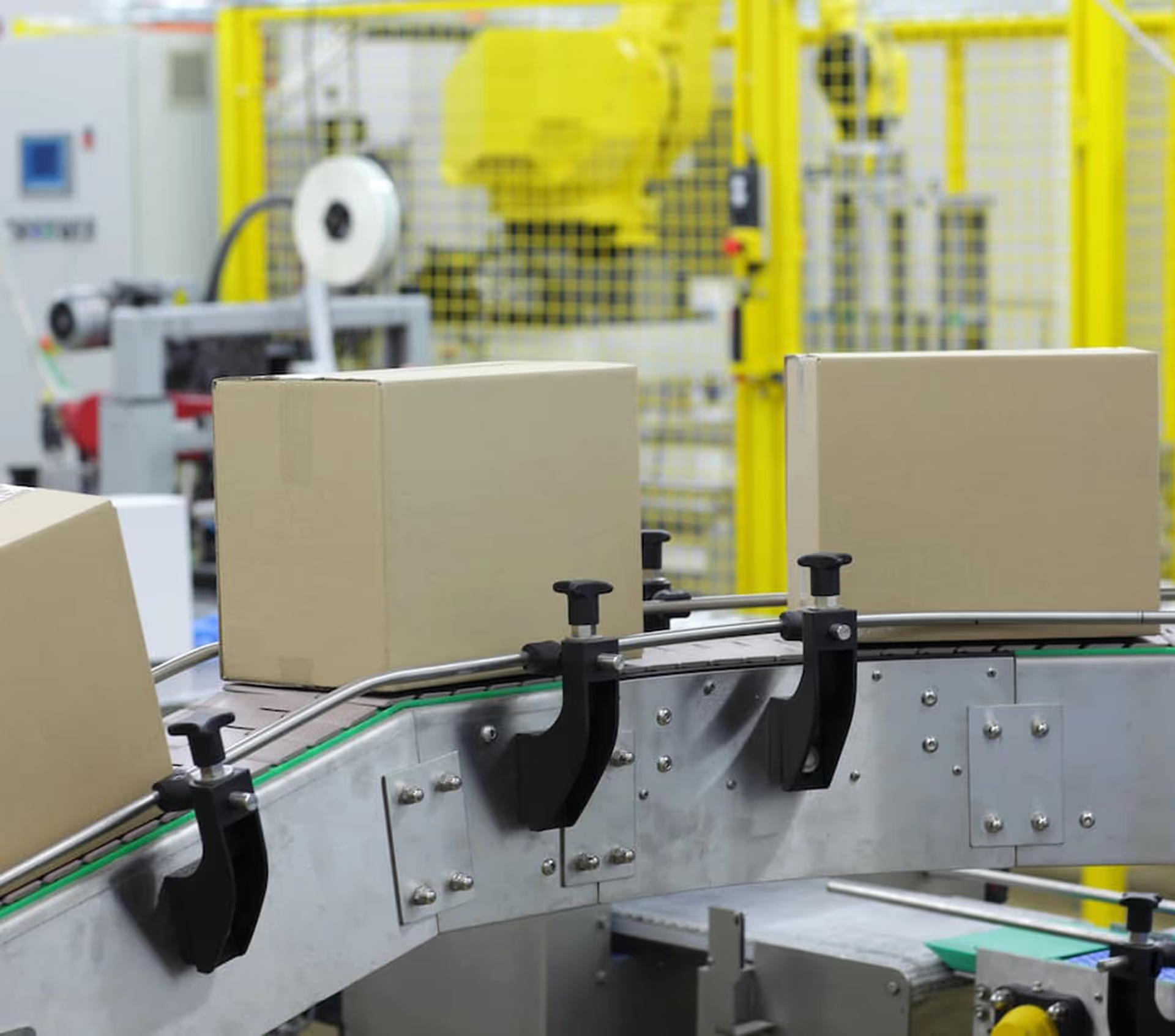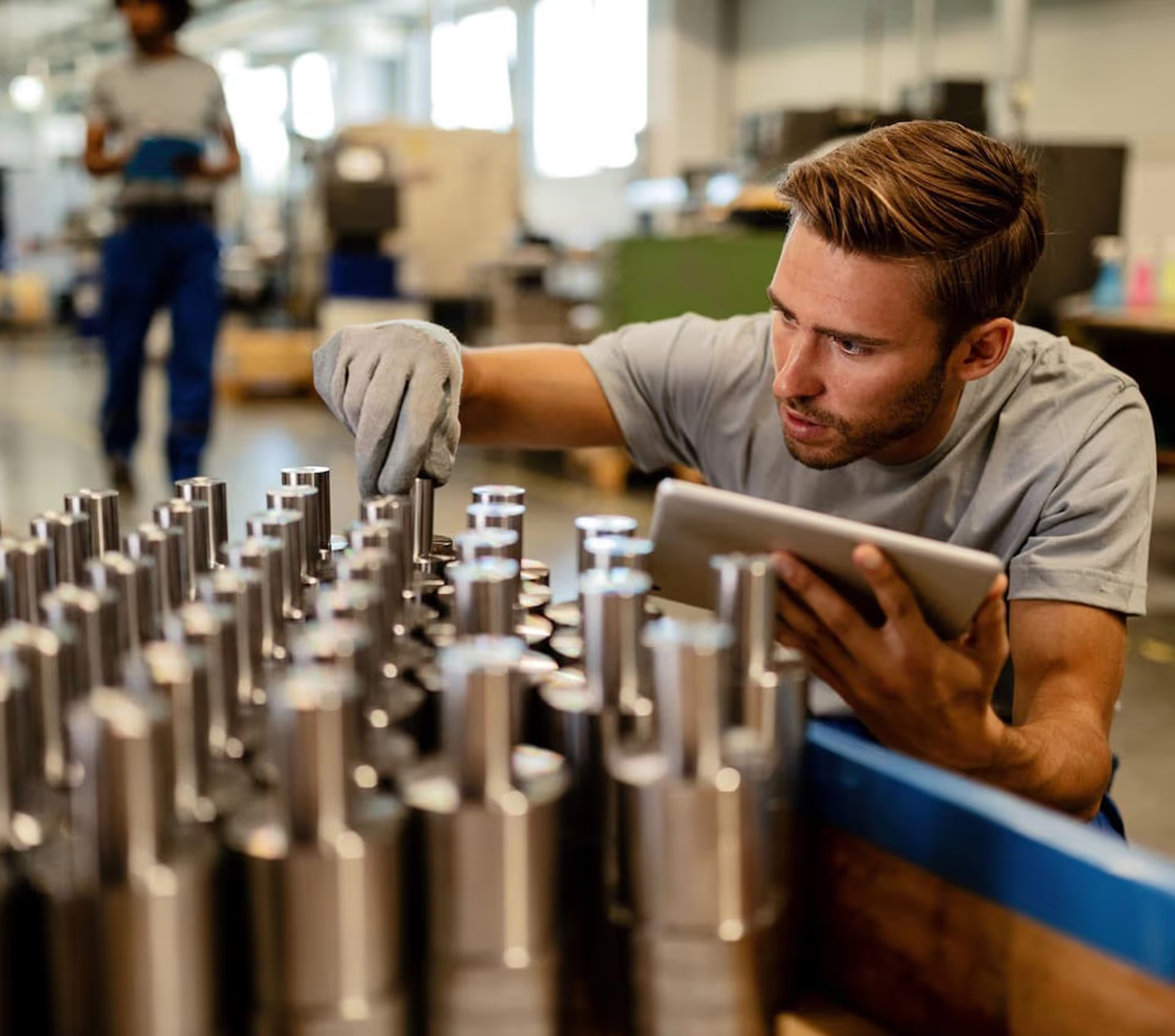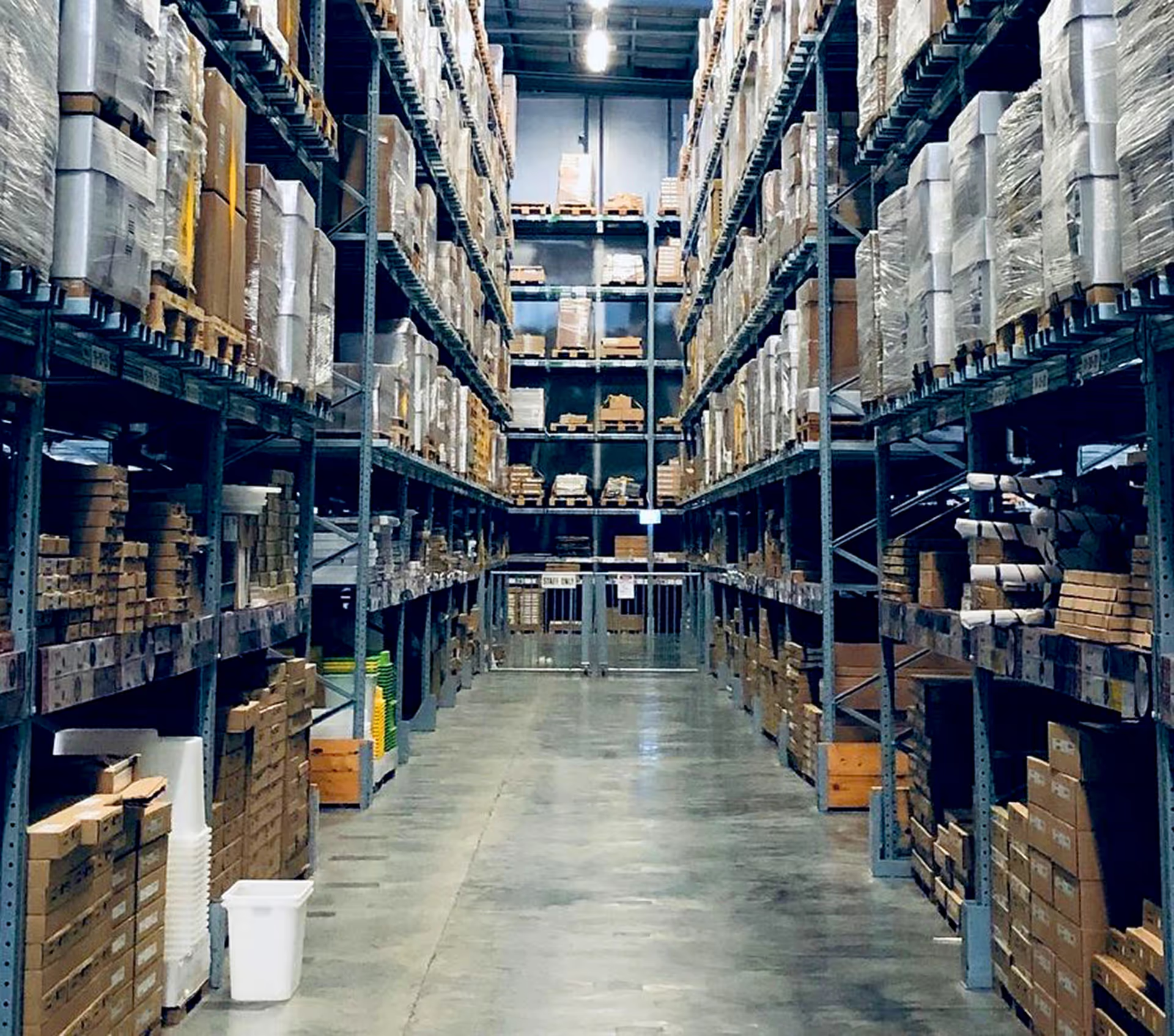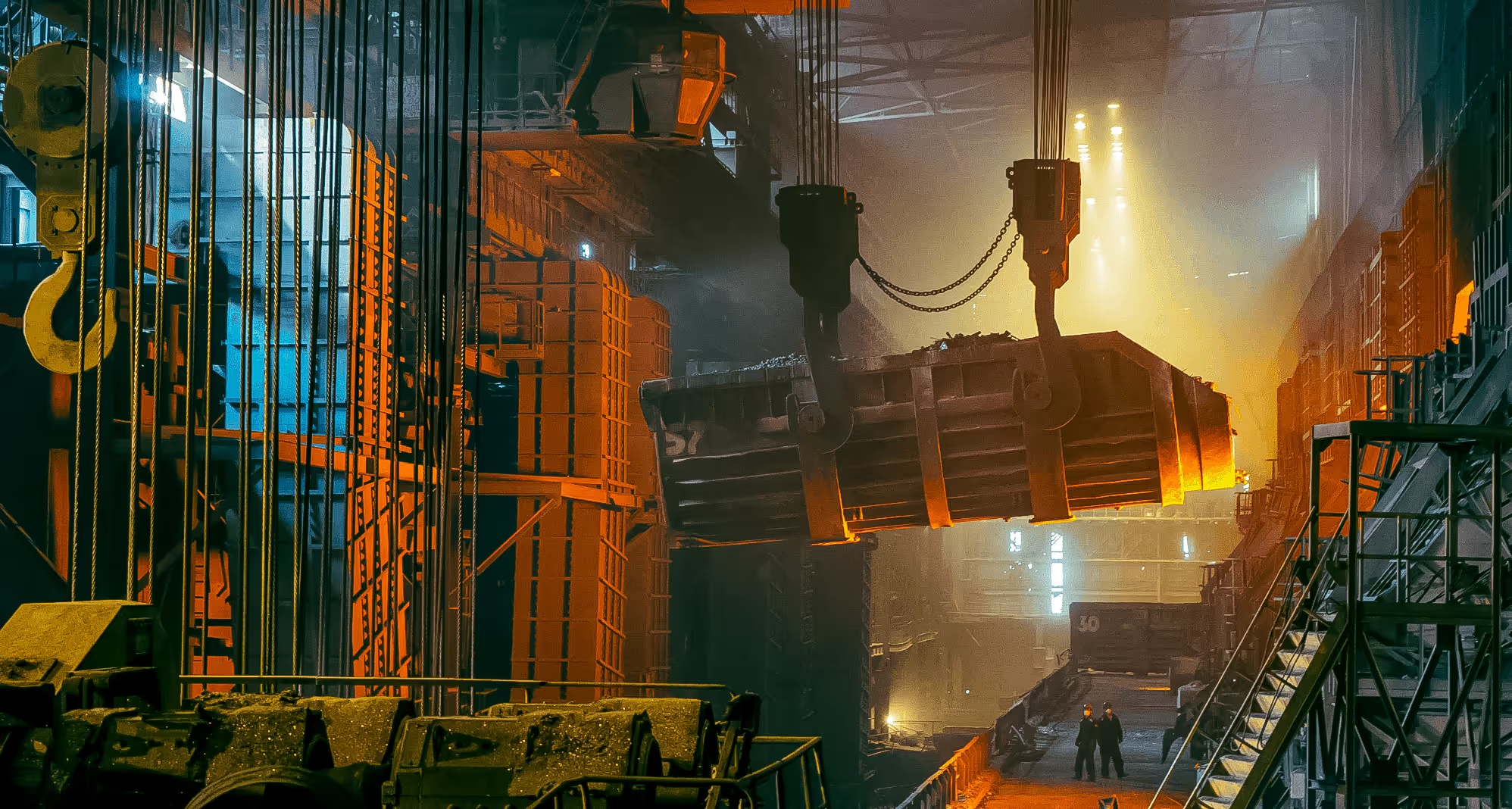By now, it should come as no surprise that China is a manufacturing powerhouse. The country has invested in creating extensive product sourcing infrastructure that allows it to easily export a wide variety of products to foreign consumers at low, affordable prices.
While many small to medium-sized businesses understand why they should buy from China, many are faced with a roadblock of how to source products from China efficiently. The logistics of buying and shipping large-scale orders from suppliers in China is a complex, time-consuming process, and mistakes can cost businesses dearly.
To help add clarity to the process, our team here at Kanary has put together a Product Sourcing 101 Guide for businesses interested in sourcing products from China. It will also help businesses that are still trying to determine if ordering from China is a strategy they should pursue.
This guide will take you through all the steps step of sourcing a product from China, including the basics of how to find a manufacturer, how to get a product manufactured, how to navigate the logistics of shipping large-scale orders, and even tips on how to clear customs.
By the end of the guide, you'll understand the basics of sourcing products from China, so that you can determine if ordering from China is right for your business).
Let's get started with the first step in the process: finding a supplier.
Step 1: How Do I Find a Supplier in China?
The first major hurdle in getting a product sourced from China is to find a quality supplier. There are hundreds of different suppliers to choose from, and while some are able to manufacture for several industries, most suppliers will have a specific product focus.
When you begin your search, you should start with a broad search of several suppliers, somewhere along the lines of 15-25 potential candidates. This will allow you to easily compare prices, capacity, and available lead times. It will also allow you to easily detect negative characteristics you want to avoid in a supplier.
Narrowing down your choices and properly vetting suppliers are important, but can feel overwhelming to businesses that are new to ordering from China. We've compiled a list of positive characteristics to look for when looking at potential suppliers (as well as red flags that can cause major headaches down the road):
Communication Is Clear and Easy
The first quality you'll notice when shopping for a supplier is how easily you can communicate with them. Language barriers are going to be a significant roadblock during your search, and clear communication is pivotal to making sure your products are manufactured exactly to your specifications.
Google Translate works well for basic words and phrases that are common when you first make contact with a supplier. Suppliers are keenly aware that language barriers can prevent them from partnering with foreign clients. Some will have limited English ability, and less-than-savory suppliers will attempt to conceal language issues until you've made a financial commitment.
This is why you should be prepared with a list of detailed, specific questions about your needs. It's much harder to conceal significant language barriers when you ask complex questions. If you find a candidate is unable to understand your needs or directly answer you, then you know it's time to move on to a different supplier.
Ideally, you have someone on staff that can speak Mandarin, which will make the sourcing process far, far easier.
Lead Times Are Reasonable and Match Your Timetable
When you find a supplier that you can easily communicate with, you'll want to determine if their lead times to manufacture the products, match your timetable for getting the products shipped. You should never offer your required deadline first. Low-quality suppliers may lie about their ability to meet that deadline, and you won't know there's an issue until you are well within the manufacturing process.
Ask what a supplier's lead times are, and if they match your preferred time frame, then they may be a potential partner.
The Supplier Offers Samples
Offering samples on large-volume orders is a standard business practice among high-quality Chinese suppliers. If a potential supplier is hesitant to offer samples or informs you that samples are not provided, this is a red flag. The supplier may be attempting to rope you into a large order commitment, hoping you don't realize that their quality of production won't meet your standards until after products are ordered.
Exactly when and how samples are received will also vary. This depends on how many suppliers you're requesting samples from and whether you’re using a sourcing agent. For example, the Kanary team will narrow down our sourcing options and order samples from our top three choices. We instruct those suppliers to ship samples to our office in China and bundle all samples together as a single shipment.
Usually, if you contact suppliers yourself, you will have several samples from several suppliers, all delivered as individual shipments. Shopping for samples can get expensive quickly with shipping alone, so if you aren’t using a sourcing specialist like Kanary, you will want to narrow down choices as much as possible before ordering samples.
Manufacturing Capacity Fits Your Needs
Making sure a supplier is a match for your needs should be a primary consideration. If a manufacturer is too small, they may have difficulty hitting deadlines due to capacity issues. On the other hand, using a large-scale manufacturer for a small order could result in you having to pay a premium in order for them to accept it.
Even if a large-scale supplier does take it on, you won’t be considered a high priority customer because your order is too low. As a result, you can expect slower production times as the manufacturer looks to finish large volume orders first. Of course, manufacturers won’t tell you about a premium or slow production times upfront, which is why it’s helpful to have people on-site that are aware of the manufacture’s production capacity.
It will take some research but making sure the manufacturing capacity of the supplier is a good fit for the volume you need can save you time and money.
Can I Trust Alibaba Suppliers?
Alibaba is a Chinese-based website that hosts the world's largest B2B supply portal. Alibaba is a good place to begin your search for a supplier, but inexperienced businesses are going to face significant hurdles in finding a genuine, high-quality supplier to meet their needs.
The biggest hurdles businesses will face is that it is almost impossible to distinguish between direct suppliers, manufacturers, and middlemen who are pretending to be direct suppliers. You'll end up paying a premium for a product that, if you connected directly with the supplier, you could have avoided.
Good suppliers do exist on Alibaba, but knowing if a seller on Alibaba is legit can be a difficult process. Most businesses will go through an extended period of trial and error before finding a supplier on Alibaba that offers a high-quality product at an acceptable price point.
Step 2: How Do I Make an Order With a Chinese Supplier? (How Do I Manufacture My Product in China?)
Once you have connected with a manufacturer, determining how to source products is an intimidating step. Even when you are sure that you've connected with a high-quality supplier, novice mistakes can create delays, increase costs, and potentially ruin a relationship with a potential long-term supply partner, affecting when and if you receive your products satisfactorily.
Following these next steps is crucial in making sure the product is manufactured to your specifications while remaining within your timeframe:
Clearly State Order Expectations
Before the manufacturing process begins,this is the final opportunity you will have to make sure you have given your supplier every detail of your order. This includes product specifications, required deadlines, and any other pertinent information. This is especially important if no one on your team speaks Mandarin.
Be Present During Manufacturing Process
When you officially place an order, you cannot afford to then check out of the sourcing process. Successfully sourcing products from China requires hands-on action, including regularly staying in touch with suppliers and having someone from your team on the ground in China to supervise production.
If you can't have someone physically on-site to check on production, then you should ask the supplier for photos and videos of your product throughout the process. Having visual evidence of quality helps to hold suppliers accountable and limits their ability to cut corners (like improperly storing products that lead to damage or defects).
Quality control is often ignored when sourcing products from China, but it is one of the most important factors to help eliminate defects and to guarantee a high level of quality. You cannot afford to ignore your products during manufacturing.
Ensure Collaboration Between Raw Material and Assembly Suppliers
Many products will require multiple suppliers to create a finished product. For example, a branded cardboard box will start with a raw material supplier. Then, those cardboard boxes are sent to a supplier that prints on them. That manufacturer may need to send the printed boxes to another supplier to add embossing or gloss, who will then send them to another supplier to cut and assemble the boxes.
Communicating with the raw material supplier to make sure that they are delivering to the assembly supplier on time is paramount to avoiding production delays. Raw material suppliers need to make sure they are delivering products without assemblers sitting idle, and assemblers need to be sure the yare ready for when the raw material supplier is available to deliver.
While high-quality suppliers usually have a logistical chain they follow, it is up to you to make sure that both are adhering to your timetable.
Determine Shipment Type

You will want to determine how your product is going to be shipped before you begin the manufacturing process. If you plan to use sea freight, you have to book a container, which has to be done weeks in advance. We recommend booking a container as soon as you place the order with your supplier.
If you are using a supplier with whom you already have a relationship established, you may want to book a container even earlier, as you most likely already know when your production will be complete. Shipping containers can be scarce (especially around the holidays), and if you wait too long to book, you could be looking at weeks or even months of delays.
While this has always been true, the COVID-19 pandemic has made it even more important to order containers ahead of time. Earlier in 2020, shipping from China essentially ground to a halt and then slowly began to reopen. With that slow reopening came very limited container availability, which has continued to be a problem.
This means that containers are even harder to find, which makes it even more important to order a container early. Now, missing a container shipment date essentially guarantees months of shipping delays.
Shipping by air freight is a less complicated process but isn't an option for many high-volume orders (or any orders involving heavy products or machinery). This should be determined before making the order. If you're unsure, your supplier will likely have suggestions of the most common shipping method they use.
Upon completion of your order, you will need to get your products shipped to their destination country. It is now time to begin planning and implementing shipping logistics.
Step 3: How Do I Handle Shipping From China?
Shipping from China is a multi-faceted process that requires familiarity with standard shipping logistics. While your supplier will most likely offer to help get your products from the factory to the port of origin (or local warehouse if air shipping), you cannot rely on supplier logistics that more often than not are overpriced and delayed. You must take charge of getting your products from the supplier to the port.
Monitoring logistics is a very hands-on process. If you aren’t prepared to take the time necessary to coordinate shipping vendors, to be available for concerns during China business hours, or you simply don’t have experience with air or sea freight shipping, a sourcing specialist would be an invaluable tool.
For example, the Kanary Team operates 24/7 to monitor and ensure there are no logistical problems with vendors, to make sure air or sea freight partners receive your products for shipment, and to guarantee that the most cost-effective shipping methods are used.
Your specific shipping logistics will vary depending on the type and volume of product being sourced, though you can ask yourself these basic questions to help make the process as smooth as possible:
Do I Need Short-Term Storage?
There is usually a time gap between when your supplier has finished your products and when your products can be shipped. This will be especially true if you are using sea freight since containers aren't regularly available.
If you know there is going to be a gap between when your products are finished and when they will ship, you'll want to make sure you have access to short-term storage. Your supplier may offer some kind of short-term storage (which is often overpriced), or you may need to procure some on your own.
Do I Need Consolidated Shipping?
Businesses regularly source a variety of products from several suppliers with the intention of shipping them all at the same time, which we refer to as consolidated shipping. This is a fantastic strategy to cut costs on shipping, especially if you are using sea freight. You'll pay a set price for a container, so the more you're able to fit, the more you save on overall shipping.
When the Kanary Team looks at the logistics of consolidated shipping, we work with warehouses along the east coast of China to make sure we use the most cost-effective port of departure. Our goal is always to keep shipping costs as low as possible.
Consolidated shipping requires a considerable amount of logistical effort. You'll need to coordinate lead times and deadlines across multiple suppliers, and you'll need to have all of your products delivered to port simultaneously when your container is ready. If you plan on ordering a variety of products across multiple suppliers, shipment consolidation should be a priority.
Confirm the HTS and HS Code Is Correct
The HTS Code is what is used by US customs to determine what kind of tariff will be applied against your product. The HTS code is based on the HS code generated by your manufacturer in China. While most high-quality suppliers will create the correct HS code, you cannot leave this solely up to them.
An incorrect HTS code can cost your business thousands of dollars. If the indicated tariff is higher than it should be, you'll end up paying higher taxes than you need to. This can add upwards of 20-30% to your total costs.
If the HTS indicates a tariff that is lower than what it should be, US Customs will levy a penalty against you. If US Customs thinks that you were attempting to commit fraud, the penalty can equal the entire cost of your order. For example, if you bought $200,000 worth of packaging and it appears you attempted to commit fraud with an improper HTS Code, then US Customs will fine you$200,000.
You can research HTS codes online to determine which code should apply to you. However, this process requires a high level of expertise and is not recommended for beginners.
Track Your Order
Once your order is in transit, you need to keep tabs on it. Common air freight shippers, like FedEx, UPS, or DHL, will provide traditional tracking numbers. If using sea freight, you'll have a vessel number that you can manually track on your own.
Tracking your order is important. The faster you know that there is a delay in shipping, the faster you can adjust your expectations and execute contingency plans.
After products arrive state-side, you have to clear customs before you can ship products to their final destination.
Step 4: How Do I Navigate Customs? (How to Pass Customs)
You are nearly done with sourcing your product when it arrives at customs, but there are still a few hurdles to clear before you are home free. Take note, there are certain unavoidable factors that can cause delays with the customs process but being prepared can reduce unnecessary delays and unexpected costs.
Your HTS Code Will Be Scrutinized
You should have already handled the details of your HTS code while preparing your products for shipment. If you waited until now to consider potential problems, it's already too late. Always consider your HTS code before shipping your products.
Know the Port of Discharge
Picking up your products can be a complicated process and knowing the correct port of discharge will eliminate delays and extra costs. You need to confirm the port of discharge so you can tell your trucking carrier what port to pick up your shipment. If there is a discrepancy between the port of discharge and the port you told your carrier to pick up the shipment, it is up to you to get your products to the carrier or hire new carrier closer to the port of discharge.
This is a costly, time-consuming mistake. Always confirm the port of discharge and be sure to relay that information to your preferred carrier.
Once your shipment is formally discharged from customs, your carrier partner will begin the process of picking up your products. However, it is possible to face more delays after you clear customs. For example, if the port is congested, customs may clear your products but move them to a closed area.
Your order will remain in this closed area until other discharged products that were ahead of you have been picked up. This process can take between a few days and up to a week, during which you products will remain unavailable for pick up.
This delay will hamper your carrier’s ability to load your products. Unfortunately, there isn’t a way to prevent this kind of delay but remaining in close contact with your carrier partner can help you adjust timelines and logistics for receiving your shipment.
Have All of Your Customs Documents Filed Properly
Part of passing customs without problems is making sure you have all required documents appropriately filed. This does include the HTS, but there are several other documents you need to be sure to have filed by the time your products reach the port. Imports from China to USA are heavily scrutinized, so have these documents ready when your products depart!
Bill of Lading(B/L)
The Bill of Lading is going to be the most important document you have. It is a detailed report that is delivered by your supplier that details:
If you don’t have the Bill of Lading, it will be impossible to import your products.
- Who is supplying the product and who is buying the product.
- What specific product is involved in the transaction.
- When this transaction took place.
- Where the products were purchased from and where they are being transported to.
- Proof of product ownership (which, in this case, would be you, the buye
ISF (Importer Security Filing)
The ISF is a required document that shows whether your products are dangerous. This is filed electronically and is received by the Department of Homeland Security.
Commercial Invoice
The commercial invoice will be given to you by your supplier as proof of purchase of products sold. This does not serve as proof of ownership(like the Bill of Laden), but customs will use it to calculate what kinds of taxes will be levied against your products.
Packing List
The packing list is a declaration document for customs. It will show the weight, measurements, and volume of the product or products you are shipping.
X-Rays
Containers will be randomly selected by US Customs for x-ray inspections. There is no way to prevent your container from being chosen, and once it is, you'll be facing a shipping delay. While you can't prevent this, you can add wiggle room to your shipping timeline so that an unexpected x-ray doesn't create a burden for your business.
Intensive Planning Is Key
The most important course of action you can take to efficiently clear customs, is to be completely and totally prepared. That means having all associated documentation regarding your order, a record of payments, and any third-party logistics and delivery partners planned and prepared before your products ever reach the port.
It is impossible to over-prepare for customs. The more time you have taken to gather pertinent information and communicate with your domestic shipping partners, the more likely you'll easily sail through customs.
Step 5: Your Products Are Delivered
Congratulations! Once your products have cleared customs and have been picked up by your trucking company, it is usually smooth sailing to get them to their final destination. While the process of sourcing products from China is intensive, both logistically and in its own right, it can be a huge benefit for your business if done correctly.

Using Kanary as Your Sourcing Specialist
While the advantages of sourcing from China are incredible for the right business, it can feel overwhelming, if not impossible, for businesses who have never looked to China for their sourcing or manufacturing needs. Even for businesses well acquainted with the process, it requires an enormous investment in time and resources.
If you believe that your business would benefit from sourcing products from China, please consider letting Kanary serve as your sourcing specialist. We handle every single detail of product sourcing, including:
- Using our established manufacturing connections to find the best supplier at the best price.
- Guaranteeing quality control and accurate deadlines by having our China-based team monitor production on site.
- Coordinating all shipping logistics, including negotiating shipping consolidation, scheduling containers, booking air and sea freight, and providing free short-term storage..
- Clearing US Customs, including guaranteeing an accurate HTS Code, monitoring shipment for customs delays, and coordinating with trucking to get your products from port to our carrier partners.
We guarantee customer satisfaction, and we will go to any lengths to make sure that the products you order are exactly as specified and free from any defects. All you need to do is tell us the product you need sourced, and the Kanary team handles the entire process.
We only service clients that we believe will receive a genuine benefit from our services. Click below for a free consultation to see what Kanary can do for you!

.png)


.jpg)





